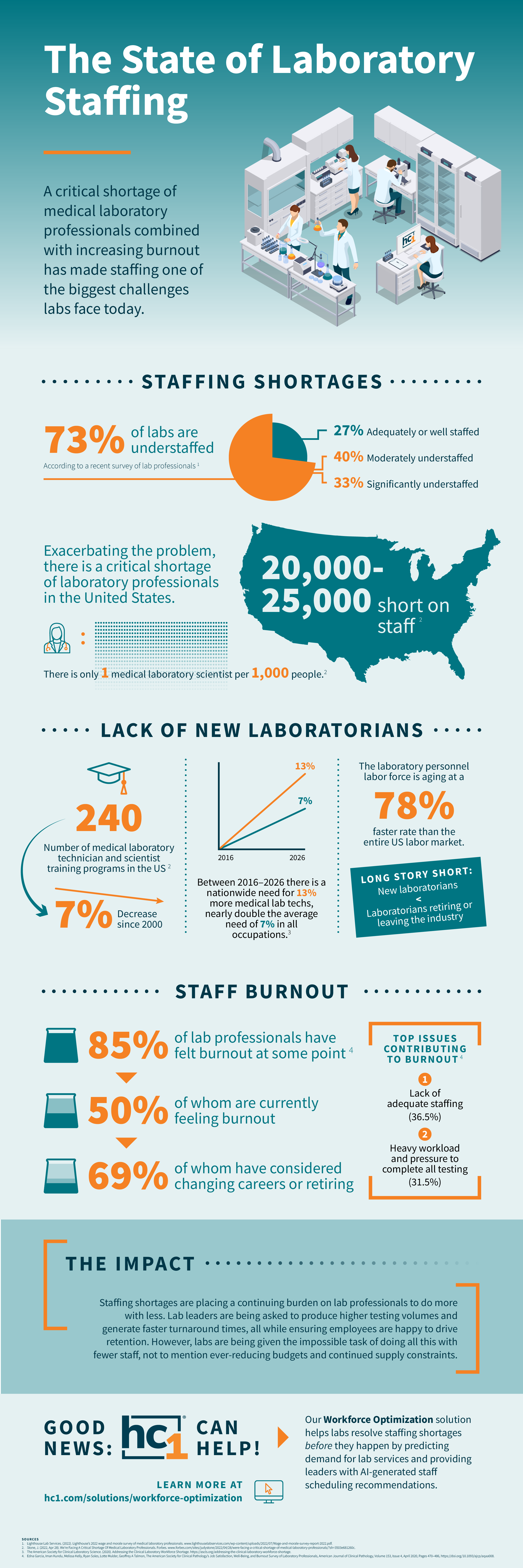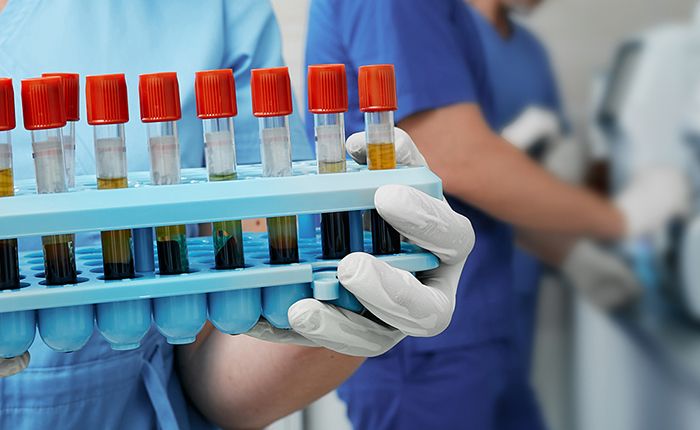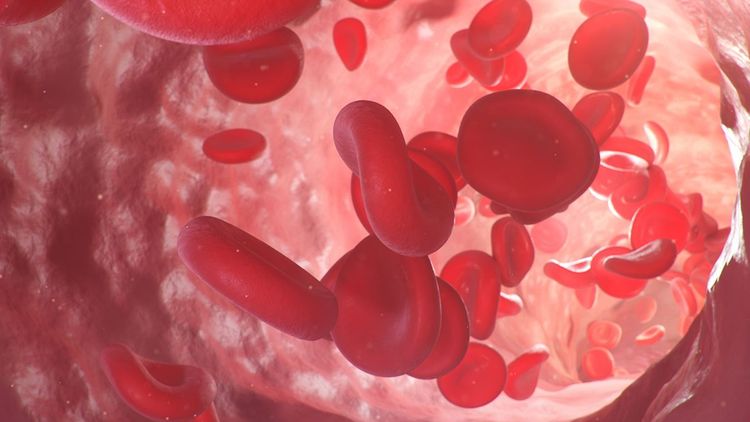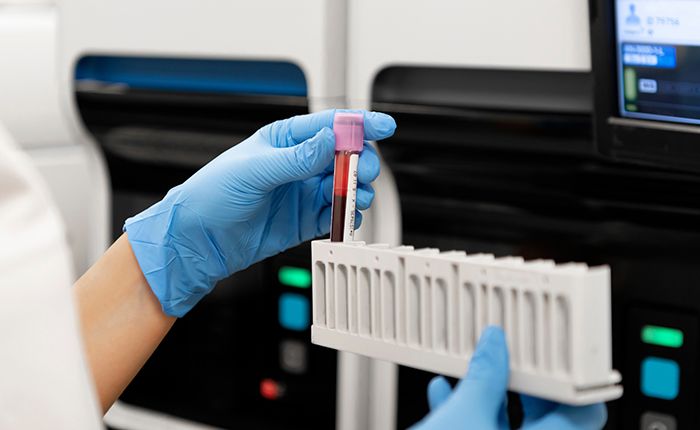
_____________________________________________________________________________
Staffing is one of the biggest challenges facing laboratories today. Over the last several years many labs have lost staff for a variety of reasons, from burnout caused by the COVID-19 pandemic to increasing rates of retirement. When combined with a declining number of training programs, the result is a critical shortage of medical laboratory professionals.
There are three primary factors contributing to this laboratory staffing challenge.
1. Staffing shortages
A 2022 Wage and Morale Survey conducted by Lighthouse Lab Services found that 40% of lab professionals indicated their lab was moderately understaffed, while another 33% described their lab as significantly understaffed. Just 27% of respondents felt their lab was adequately or well-staffed.
In total, this amounts to a shortage of approximately 20,000-25,000 laboratory staff across U.S. laboratories, or roughly one medical laboratory scientist per 1,000 people.
2. Lack of new lab professionals
One cause of these increasing lab staffing shortages is that the number of new laboratory technologists and technicians isn’t keeping up with the pace of those retiring or leaving the industry. The Bureau of Labor and Statistics “projects a nationwide need for a 13% average increase in medical laboratory technologists and technicians between 2016 and 2026, nearly double the underlying average increase in all occupations of 7%.”
A major factor is that the number of laboratory training programs is declining. There are approximately 240 medical laboratory technician and scientist training programs in the United States, a 7% drop from 2000, and some states have no training programs.
With the laboratory personnel labor force aging at a 78 percent faster rate than the entire United States labor market, it is critical that the lab industry finds a way to train current staff and increase the number of new laboratory professionals entering the market.
3. Staff burnout
A recent survey by the American Society for Clinical Pathology found that 85.3% of respondents reported having felt burnout as a laboratory professional. About half of those respondents that felt burnout reported this as a current issue, with 69.3% considering changing careers completely or retiring in response.
The top issues contributing to the burnout of laboratory professionals are lack of adequate staffing (36.5%) and heavy workload and pressure to complete all testing (31.5%), indicating a strong correlation between staffing shortages and burnout.
The impact
These staffing shortages have placed a continuing burden on lab professionals to do more with less. Lab leaders are being asked to produce higher testing volumes and generate faster turnaround times, all while ensuring employees are happy to drive retention. However, labs are being given the impossible task of doing all this with fewer staff, not to mention ever-reducing budgets and continued supply constraints.
The solution: hc1 Workforce Optimization™
The good news is that hc1 can help labs overcome these staffing challenges! Our Workforce Optimization solution helps labs resolve staffing shortages before they happen by using AI to predict demand for lab services and provide staff scheduling recommendations.
By predicting demand for lab services department-by-department across the organization, Workforce Optimization enables lab leaders to proactively identify potential shortages or overages, adjust staffing assignments accordingly and monitor the business impact of changes over time.
Interested in learning more about how Workforce Optimization? Request a demo today to discuss how we can work together to enable you to make better, faster, more confident staff scheduling decisions.
_____________________________________________________________________________
Mackin Bannon is the product marketing manager for hc1. Mackin held various roles covering nearly every marketing area before settling on product marketing as a focus and joining hc1 in 2022. During the workday, he enjoys bringing stories to life in clear and creative ways. In his free time, he enjoys following his favorite sports teams, collecting vinyl records and exploring Indianapolis.













